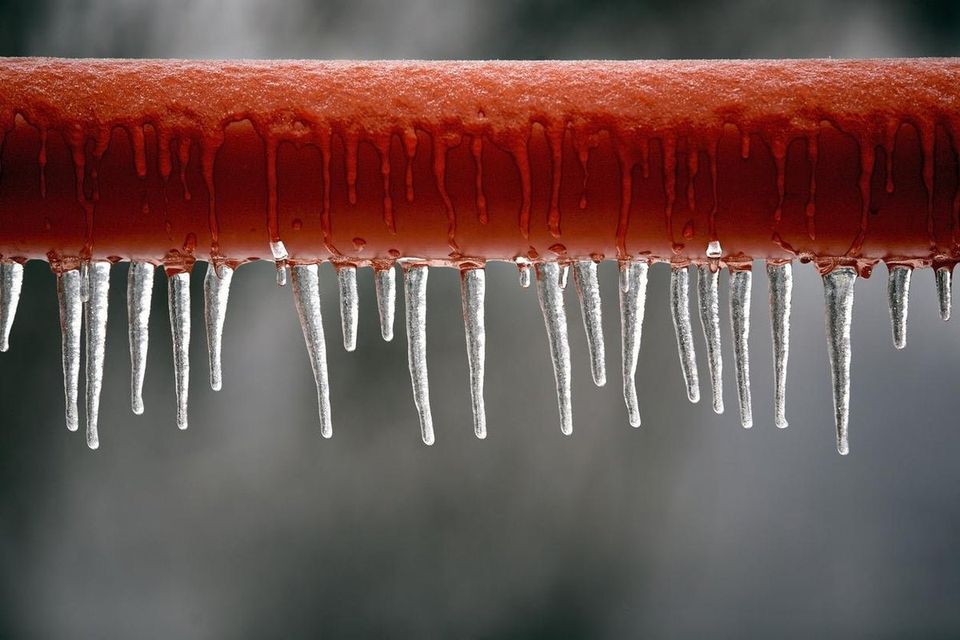Crucial Advice to Protect Against Frozen Plumbing in Cold Weather
Crucial Advice to Protect Against Frozen Plumbing in Cold Weather
Blog Article
They are making a number of good annotation about How To Avoid Freezing Pipes in general in this great article further down.

Cold weather can wreak havoc on your plumbing, particularly by freezing pipelines. Below's how to stop it from occurring and what to do if it does.
Introduction
As temperatures decrease, the threat of frozen pipelines increases, potentially bring about costly repair services and water damages. Understanding exactly how to avoid icy pipelines is crucial for homeowners in cold environments.
Prevention Tips
Shielding vulnerable pipelines
Cover pipelines in insulation sleeves or utilize warmth tape to secure them from freezing temperatures. Concentrate on pipes in unheated or outside locations of the home.
Heating strategies
Maintain interior rooms effectively warmed, especially areas with plumbing. Open up cupboard doors to enable cozy air to circulate around pipes under sinks.
Exactly how to determine icy pipelines
Look for lowered water flow from taps, uncommon smells or noises from pipes, and noticeable frost on exposed pipelines.
Long-Term Solutions
Architectural changes
Consider rerouting pipes far from exterior walls or unheated areas. Add additional insulation to attic rooms, basements, and crawl spaces.
Upgrading insulation
Buy high-grade insulation for pipelines, attic rooms, and wall surfaces. Correct insulation aids preserve consistent temperature levels and lowers the threat of icy pipelines.
Securing Outdoor Pipes
Garden hoses and outdoor faucets
Separate and drain pipes garden pipes before winter. Mount frost-proof spigots or cover outdoor taps with protected caps.
Comprehending Frozen Pipelines
What creates pipes to ice up?
Pipes freeze when subjected to temperatures listed below 32 ° F (0 ° C) for expanded periods. As water inside the pipes freezes, it broadens, putting pressure on the pipeline wall surfaces and potentially creating them to rupture.
Threats and damages
Icy pipelines can result in water supply disruptions, residential property damages, and costly repair services. Ruptured pipes can flooding homes and trigger considerable architectural damages.
Indicators of Frozen Water Lines
Recognizing icy pipes early can prevent them from bursting.
What to Do If Your Pipelines Freeze
Immediate activities to take
If you suspect icy pipelines, maintain faucets open to alleviate stress as the ice thaws. Use a hairdryer or towels taken in warm water to thaw pipes slowly.
Conclusion
Avoiding icy pipelines requires positive actions and fast responses. By comprehending the causes, signs, and safety nets, home owners can shield their plumbing during winter.
Helpful Tips to Prevent Frozen Pipes this Winter
UNDERSTANDING THE BASICS: WHY PIPES FREEZE AND WHY IT’S A PROBLEM
Water freezing inside pipes is common during the winter months, but understanding why pipes freeze, and the potential problems it can cause is crucial in preventing such incidents. This section will delve into the basics of why pipes freeze and the associated problems that may arise.
THE SCIENCE BEHIND FROZEN PIPES
When water reaches freezing temperatures, it undergoes a physical transformation and solidifies into ice. This expansion of water as it freezes is the primary reason pipes can burst. As the water inside the pipe freezes, it expands, creating immense pressure on the walls. If the pressure becomes too great, the pipe can crack or rupture, leading to leaks and water damage.
FACTORS THAT CONTRIBUTE TO PIPE FREEZING
Low Temperatures: Extremely cold weather, especially below freezing, increases the risk of pipes freezing. Uninsulated or Poorly Insulated Pipes: Pipes located in unheated areas, such as basements, crawl spaces, or attics, are more prone to freezing. Insufficient insulation or lack of insulation altogether exacerbates the problem. Exterior Wall Exposure: Pipes running along exterior walls are susceptible to freezing as they encounter colder temperatures outside. Lack of Heating or Temperature Regulation: Inadequate heating or inconsistent temperature control in your home can contribute to frozen pipes. PROBLEMS CAUSED BY FROZEN PIPES
- Pipe Bursting: As mentioned earlier, the expansion of water as it freezes can cause pipes to burst, resulting in significant water damage.
- Water Damage: When pipes burst, it can lead to flooding and water damage to your property, including walls, ceilings, flooring, and personal belongings.
- Structural Damage: Prolonged exposure to water from burst pipes can compromise the structural integrity of your home, leading to costly repairs.
- Mold and Mildew Growth: Excess moisture from water damage can create a favorable environment for mold and mildew growth, posing health risks to occupants.
- Disrupted Water Supply: Frozen pipes can also result in a complete or partial loss of water supply until the issue is resolved.
WHY CERTAIN PIPES ARE MORE PRONE TO FREEZING
- Location: Pipes located in unheated or poorly insulated areas, such as basements, crawl spaces, attics, or exterior walls, are at higher risk of freezing.
- Exterior Pipes: Outdoor pipes, such as those used for irrigation or exposed plumbing, are particularly vulnerable to freezing as they are directly exposed to the elements.
- Supply Lines: Pipes that carry water from the main water supply into your home, including the main water line, are critical to protect as freezing in these lines can affect your entire plumbing system.
- Underground Pipes: Pipes buried underground, such as those connected to sprinkler systems or outdoor faucets, can be susceptible to freezing if not properly insulated.
https://busybusy.com/blog/helpful-tips-to-prevent-frozen-pipes-this-winter/

As a keen reader about Helpful Tips to Prevent Frozen Pipes this Winter, I thought sharing that excerpt was worthwhile. Feel free to take a moment to share this content if you enjoyed it. Thank you for your time invested reading it.
Get A Free Quote Report this page